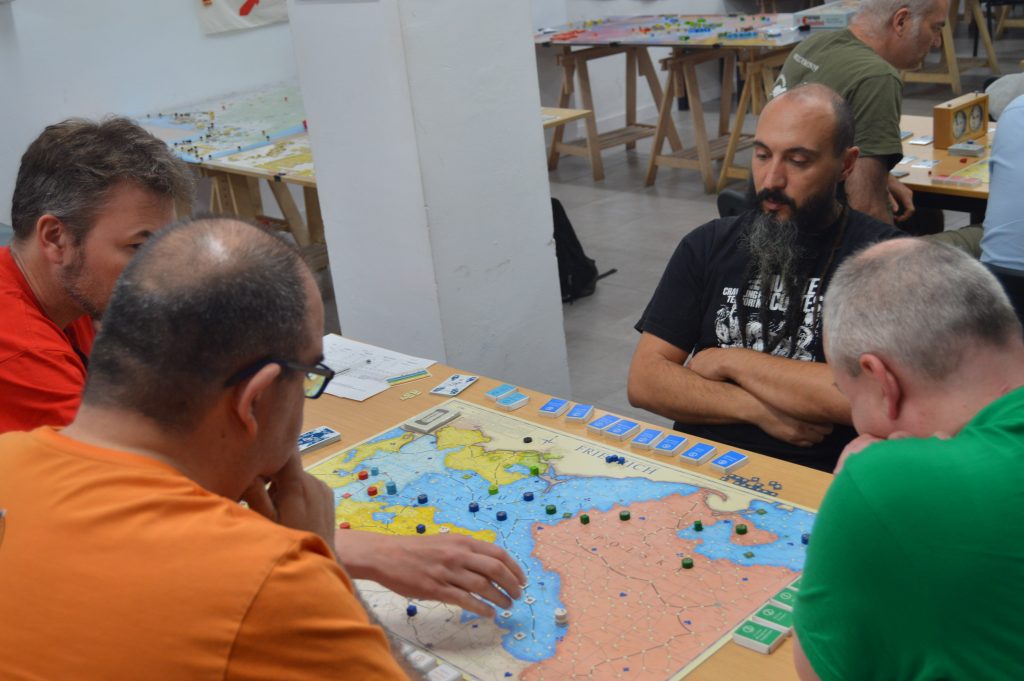
Daniel calmly observes the board as Andreas stretches his arm to take the piece marking the last battle winner. Next time, Alberto (orange shirt), be so kind to help him!.
Table 1
In his debut as Prussia in a tournament, Daniel Pastor had picked a couple of tips from the veterans during the midday meal. After Elisabeth came off board on round 9 he was able to keep the Swedes at bay with an economical auto -1 retreat. But otherwise he resorted to that well known tactic among green players: fight a lot, and see what comes out of it.
It went well at first, to the dismay of Maurice’s Russians and Andreas’ Frenchmen. Even Austria seemed to be well under control. But Alberto – playing with the white pieces – was slowly gathering strength and a few objectives here and there, taking it easy and playing for time. This worked, as Lord Bute came around on round 7 and Alberto’s offensive developed afterwards very quickly, achieving victory on round 13, just when Daniel was beginning to run on stopwatch time. Andreas was able to snatch 9 out of 10 objectives, but his enemy collapsed too quickly for him to snatch a joint victory.
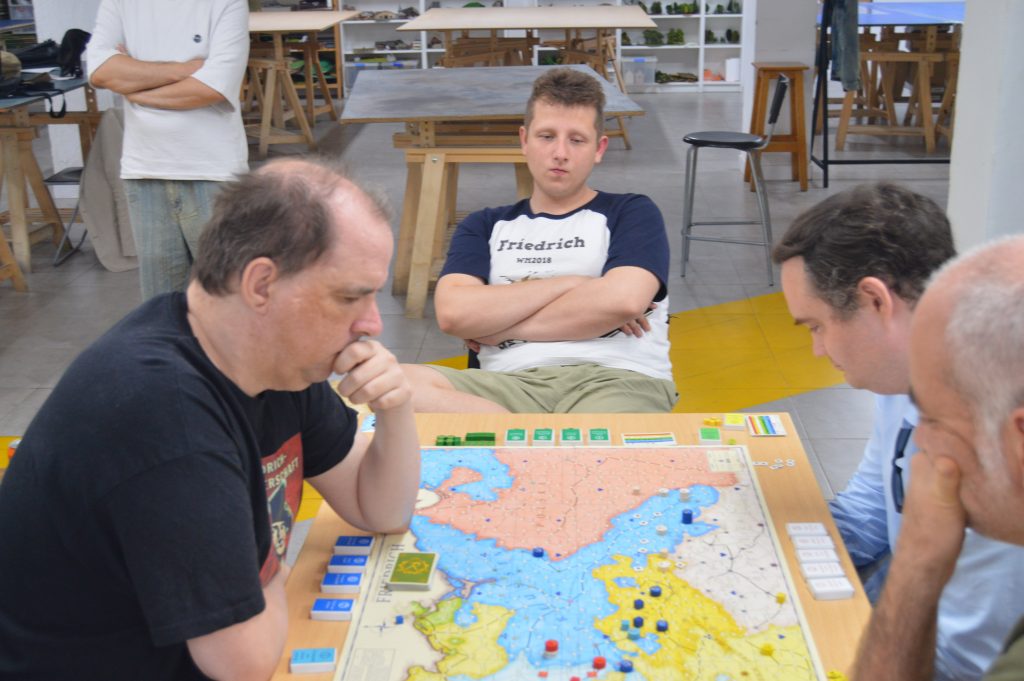
David Önkür adopts the typical posture of the idle Swede. Would the command of the Imperial Army shortly thereafter keep him more excited?
Table 2
Four years ago, when he first reached a CAFE Final, Björn found playing and winning as Prussia very stressful. Nowadays, he seems to go about it much more casually. The elimination of Russia and Sweden on rounds 9 and 11 respectively was somewhat offset by Lord Bute on round 10. But it still wasn’t enough for David Fernández (Maria Theresa) to crack the Prussian diamond defence open. He managed to conquer Silesia, but Radeberg held in the end. Far to the west, all Alex Calderón’s Frenchmen could do was to conquer the Hanoverian objectives. Round 21 saw the game end with victory for Björn.
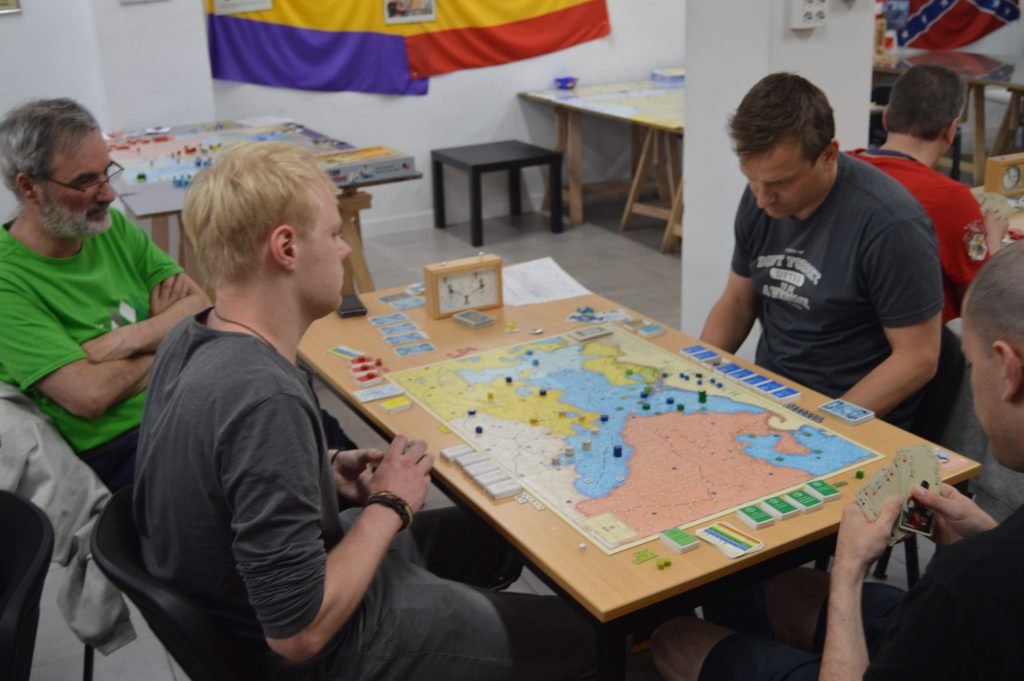
Concentration on this table seems to be shared by all players, but for José Manuel, whose responsabilities as the Empire are somewhat limited
Table 3
While Prussia is Anton’s best role in the game, he still needed 40 minutes for the first 6 rounds of the game. It proved to be a solid foundation for the victory of the blue pieces. Russia dedicated first 3 generals to East Prussia and was a bit slow to movilize against the objectives in Kammin. Alexander Schröder’s Austrians were held off in the spades sector in Silesia, and it was just at the end that he seemed to be making some progress after relentless attacks there during most of the game. Perhaps he just needed a few more rounds to obtain victory, but this happened to be a relatively short game when Prussia won after only 16 rounds.
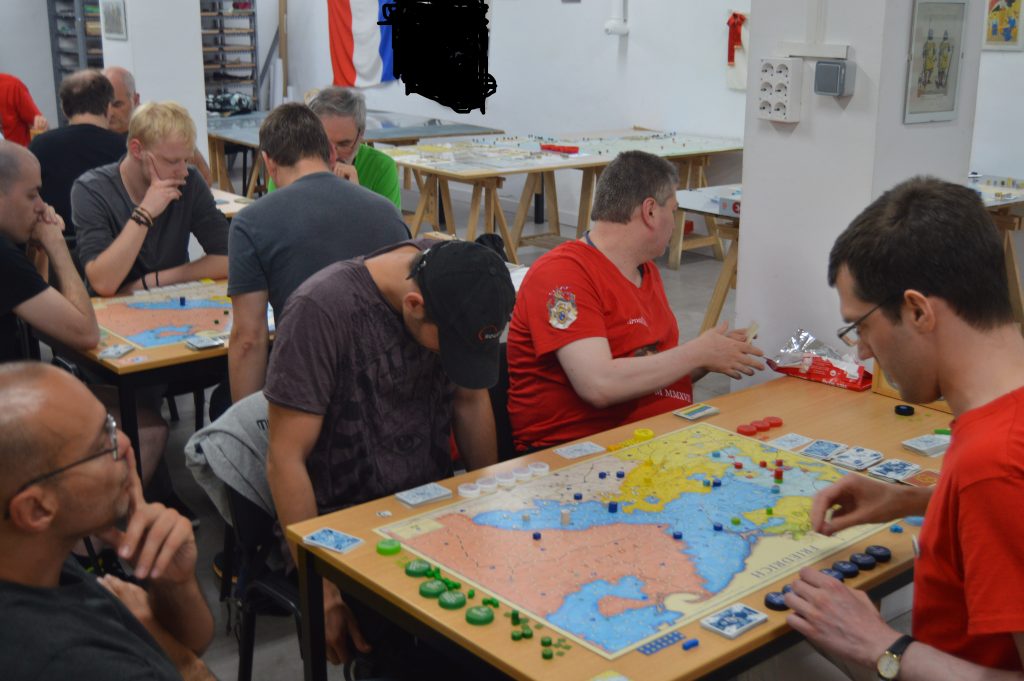
Prussia has just bought some armies. Please everyone look away!
Table 4
Andrew Brown decided to defend Silesia with Prussia and make Saxony safe by defeating the Imperial Army early. This was a sound strategy that was dealt a blow on round 6 by Lord Bute and on round 10 by Poems, Elisabeth’s death on round 9 notwithstanding, as Javier Lobato had exerted himself as much as he could with the Russians, which took a heavy toll of Andrew’s dwindling tactical card supply. Felix Schmücker was able to make the most of Andrew’s attrition and take victory with Austria in round 15. Arnold was just 1 objective short of victory.
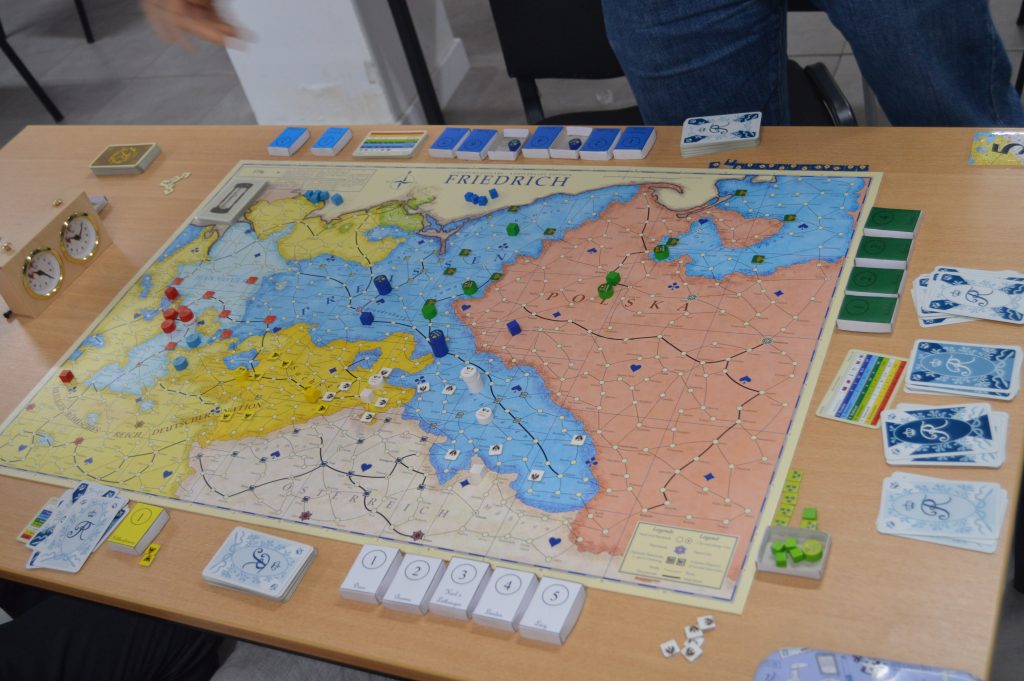
Picture taken at game’s end. Prussia is barely holding on to any objective at all.
Table 5
Juanjo – our out of contest player in the tournament – scored an achievement with this game: it was the quickest one of the whole competition, needing just 7 rounds while still having 111 minutes left in the clock. Unfortunately for him, this happened while playing with Prussia. In a game where his defence, or lack thereof, made little sense because of the unbereable stress he was feeling, any one of the 3 Allies may have carried the day and victory. This in the end went to Guy’s Russians, while John’s Imperials and Mark’s Frenchmen were just one round away from victory. Sometimes you just wish your Friedrich player could hold on for another round!


 Español
Español

